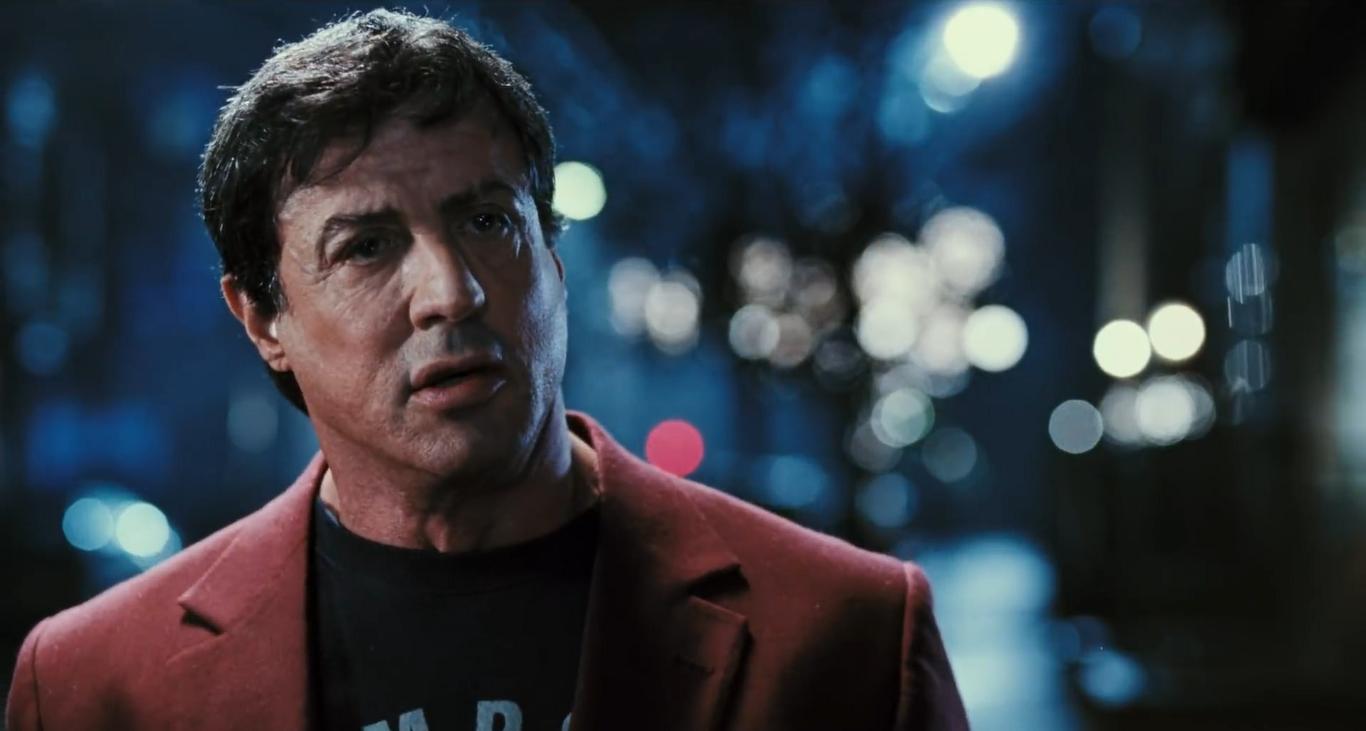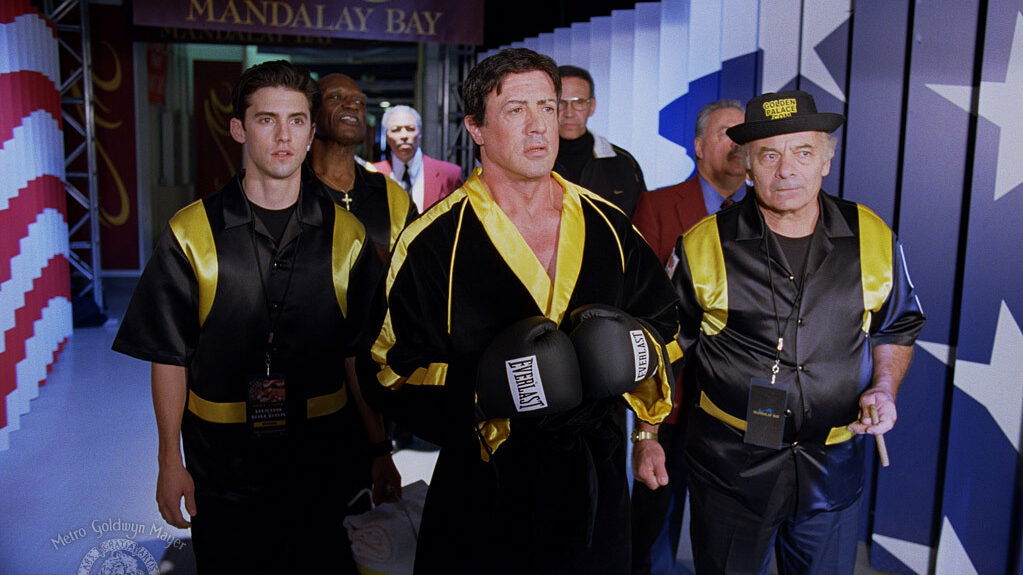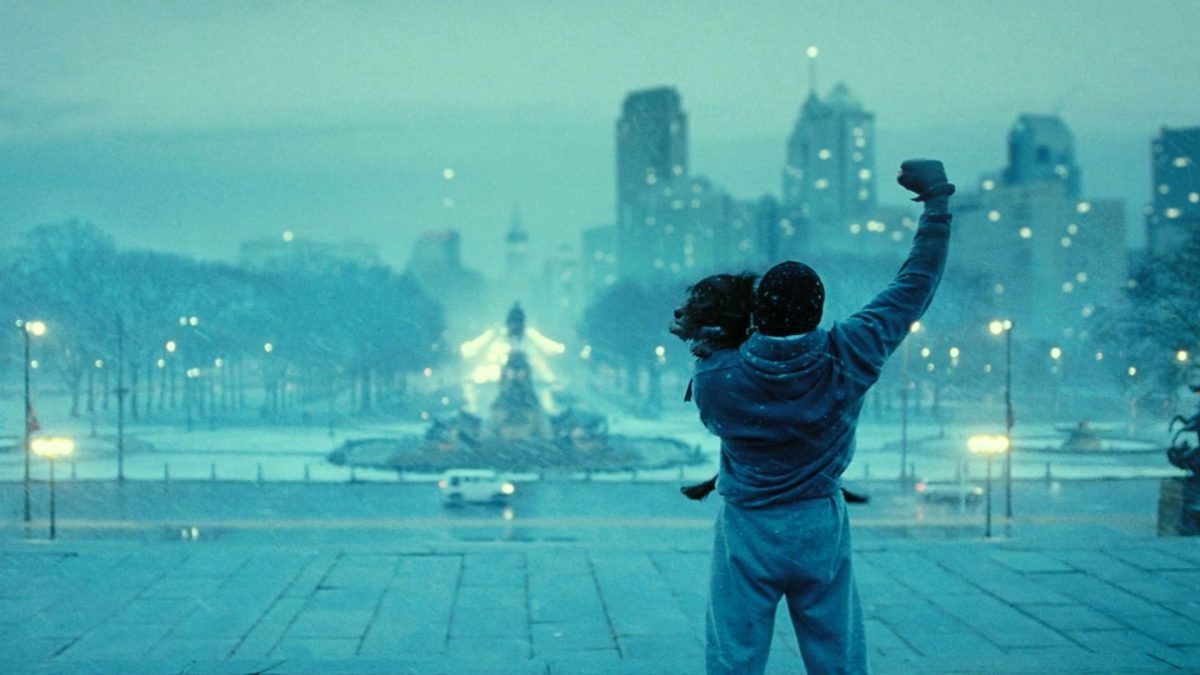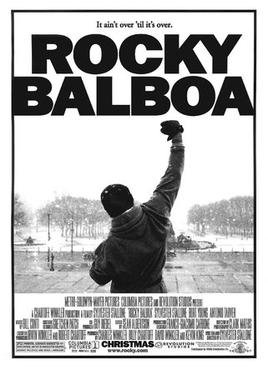Against all odds and naysayers, Rocky Balboa emerges as Sylvester Stallone’s heartfelt swansong to the beloved underdog who made him a legend. What was Stallone thinking, or was he thinking at all? Or was he just thinking that he could use his most famous character as a way to make a few bucks and get him the share of the spotlight he hasn’t had since he wailed on John Lithgow in Cliffhanger? Well, I’m big enough to admit when I’m wrong, and as far as Rocky Balboa goes, Sylvester Stallone couldn’t have made a nicer comeback movie or a better coda to the famous underdog boxer from Philly.
In part six, Rocky’s living a good life running an Italian restaurant in his old neighbourhood named after his late wife Adrian; at Adrian’s, people come to hear the champ’s battle stories and stay for the food. Rocky walks the streets and still gets recognized by the fans, a little too often for the taste of his son Rocky Jr. (Milo Ventimiglia) though.
Rocky has kept his promise to Adrian and left the ring behind, but a computer simulation on ESPN between the current champ, Mason “The Line” Dixon and Rocky in his prime shows that Rocky would be the winner. As you already know, this gets Rocky thinking that maybe he’s “got some stuff in the basement.” “What? You haven’t peaked yet,” replies his brother-in-law Paulie (Burt Young) cynically.

Stallone, as writer, director and star, manages to balance many things, zipping back and forth through the story and numerous nods to all five previous installments. There’s an emotional heart to the film, and it’s summed up in a great scene between Rocky and Paulie where Rocky describes his grief as a monster that’s eating him from the inside; his return to the ring becomes an outlet for all that emotion because it’s really all he knows.
The little stories add up, and what we get is the story of a man who doesn’t aspire to greatness, but is made great by his actions. Stallone reinforces the simplicity of Rocky’s life as a simple man with almost no effort; he’s the guy you want to root for, and while Stallone may not be an acting god, he certainly knows this character well.
Stallone hits all the usual highlights, especially the iconic training montage that pays homage to past sequences with another run up the steps of the Philadelphia Museum of Art. He also goes to great lengths to ensure the story’s realism; Rocky’s age is acknowledged as it requires some special training, and current champ Dixon has yet to face a real challenge in the ring, despite his posturing. Composer Bill Conti also returns to deliver all those classic Rocky themes, although he rearranges them a bit to give them more emotional weight depending on the scene.

In a way, Rocky Balboa isn’t about a fight – it’s about a man who appreciates the spiritual value and the physical release that boxing is. Boxing, in this movie, is a metaphor for life, not a spectacle. Life, as Rocky observes, hits harder than anyone, so it’s a matter of seeing how hard you can get hit while still being able to keep moving that proves your strength. Stallone has returned Rocky to his underdog roots and makes the character worthy of rooting for again.






